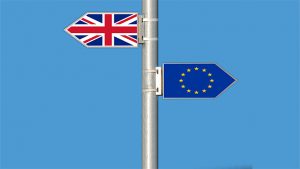
Over the past year, the end of the Brexit transition period and the Coronavirus pandemic have meant businesses have had a lot to deal with. Now, months into the Brexit landscape, businesses have had time to adapt to the new rules and procedures, with some feeling more comfortable than others. Now that we are outside the Customs Union and Single Market, there is no denying that companies have completely changed how they conduct business with the EU.
SME’s need to get their international trade back up and running
Some SME’s have decided to suspend trading internationally temporarily, due to the Trade Corporation Agreement. It is important for them to build up their confidence to restart trading. For businesses to get back in the game, they need to consider two main things –
- lead times
- taking into account the varying local regulations for each potential trading country
Keep an eye out for new local regulations
When doing business in the EU, the additional complexity that arises from the new EU TCA means that businesses need to make sure they remain compliant when trading internationally. Businesses now need to factor in a greater appreciation for the local regulations of each country. This increases the amount of advance planning that is required. Local regulations can often bring unexpected additional costs, which must be factored into a business’s planning. While it might not be as easy as it was previously to trade internationally, research and the appropriate preparations can lessen the load.
Researching the potential additional costs requires businesses to work their way through the new rules. It includes evaluating if employing extra staff is required to meet the increased demand for paperwork and research. Rather than making themselves familiar with only one set of regulations for the EU, businesses now also have to focus on regulations on a country-by-country basis. For example, if a business has traded in Germany, it doesn’t automatically mean that it can trade in Italy as the regulations and requirements may be different.
The new global landscape – strengthening trading relationships
The impact of the TCA has also led more businesses to look outside of the EU. They are focusing on strengthening the trading relationships that the UK now has with other countries worldwide. Opportunities are opening up for business due to new free trade agreements. Markets that may previously have felt off-limits or unnecessary may offer significant rewards.
One of the ironies of Brexit is that in some cases, businesses have decided to establish themselves as well as invest in the EU. Many see this choice as a way to regain control over growing trade obstacles. Other businesses have put down roots in the EU to ensure they can trade efficiently.
For UK businesses embracing a global outlook, the objective is to trade freely and find new markets that are right for their products and services. Being able to trade internationally means businesses need to prove they can adapt and change. Businesses have started to understand that to do this; they need to continually test their international business model. They may need to make changes to ensure they can take advantage of all that the new global landscape offers.
There is support available
At Menzies we are members of HLB International, the global advisory and accounting network. It enables us to source local advice in over 150 countries, including all EU member states. Where businesses have won contracts with overseas customers, we can therefore help assess the local implications. We can advise on the hurdles that may arise and answer questions around issues such as
- VAT registration,
- business taxes,
- local permit registration,
- global mobility
- and sector-specific operations.
This local advice may mean that a business needs to adapt and change its approach and critically review whether its previous operating model is still suitable for the future. For example, if a business is importing and exporting goods with the EU, would it be more cost-efficient, in the long run, to set up a hub operation in the EU and take goods directly there while employing staff locally? When focusing on these main issues, it is important to remember that allowing enough lead time is important.


























